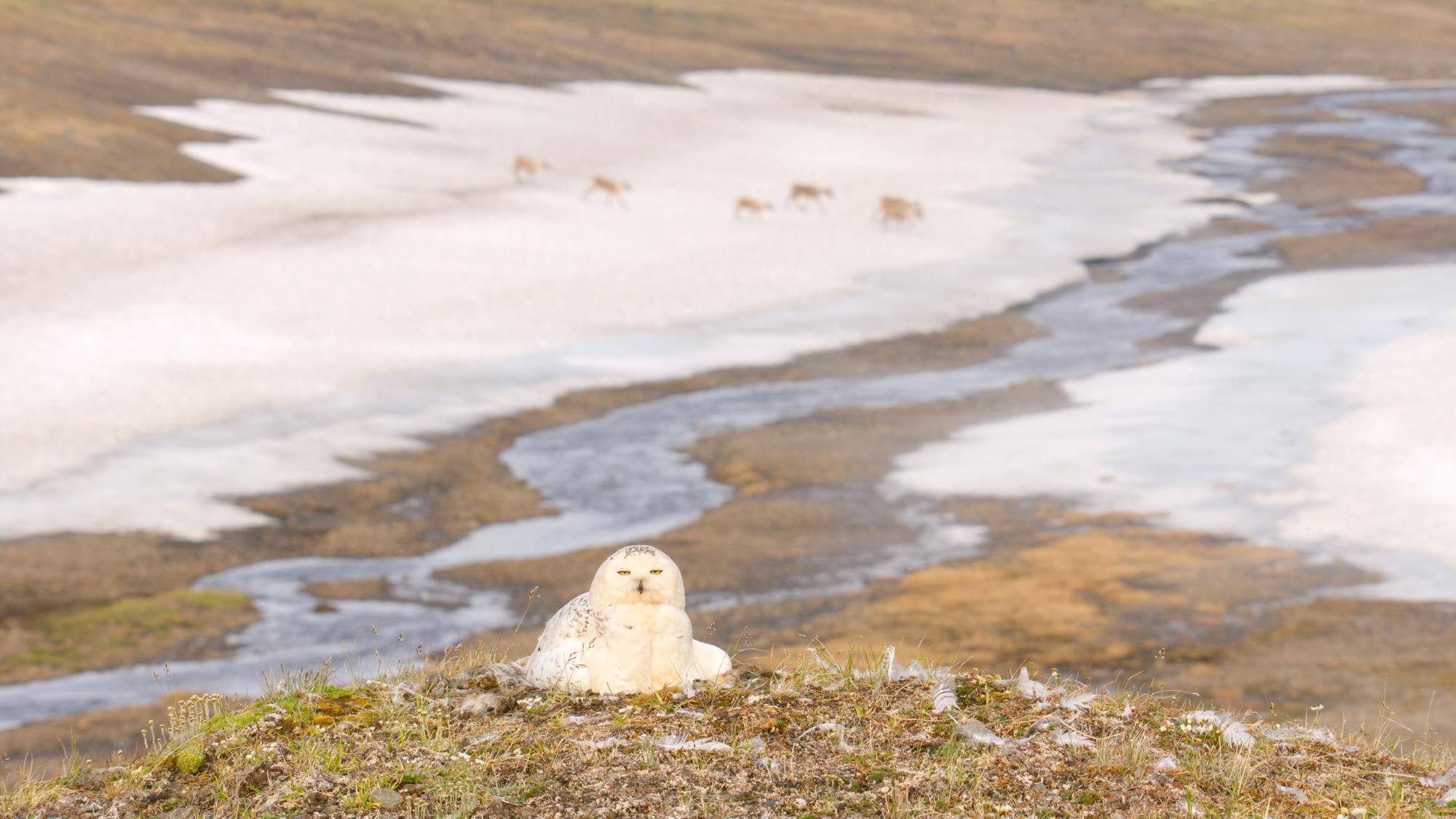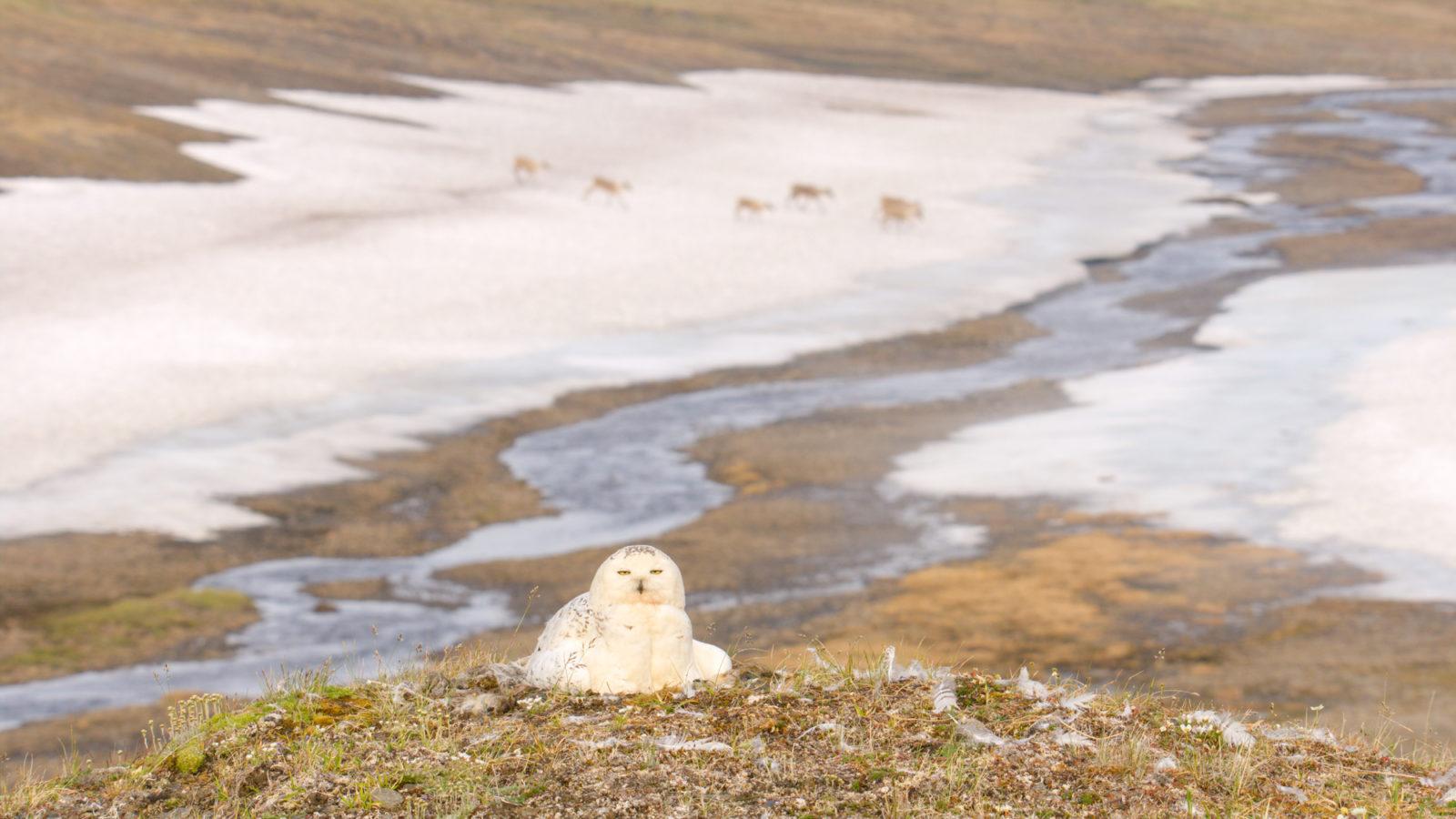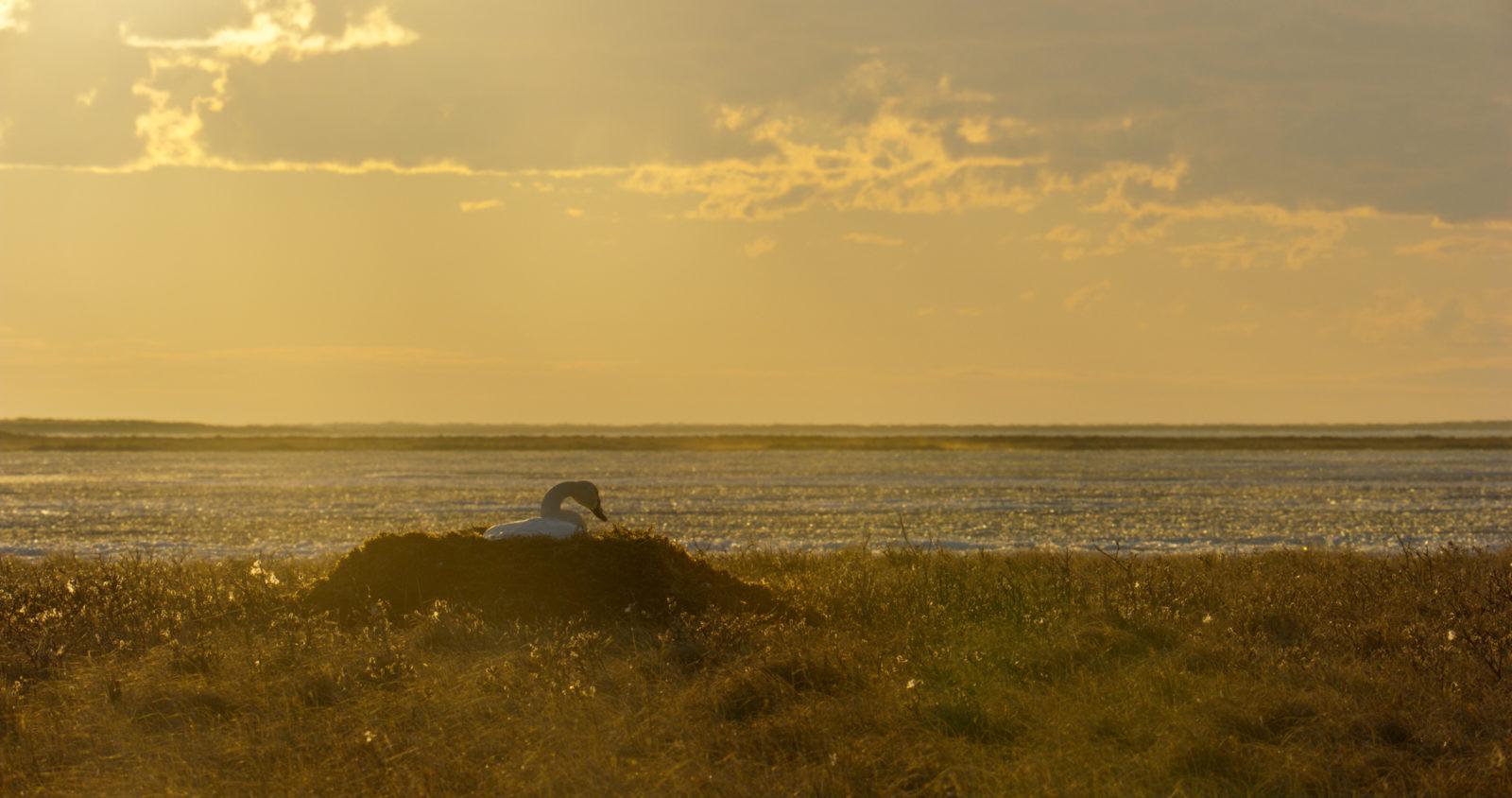
The Arctic on the precipice
By Dawnell Smith
Alaska faces serious climate impacts, pollution concerns, and industrial pressures. A new Arctic study shows that the amplified warming in the Arctic exceeds what climate models predict, with dangerous consequences for people and the planet. Meanwhile, decisions about Arctic extraction projects teeter in a perilous place.

Last weekend, Congress passed a landmark bill with huge climate investments and President Biden signed it into law. The Inflation Reduction Act puts desperately needed resources into climate action, and yet fails to protect some places and communities from on-the-ground impacts that affect food and water sources, public health, and ways of life.
In many ways, this legislation has turned Alaska into a sacrifice zone and made the Arctic a political pawn. The threat to the health of land, water and communities extends to other parts of Alaska, too; Cook Inlet lease sales that the Biden administration previously canceled due to lack of industry interest are now mandated by the Inflation Reduction Act.
The bill also takes what should be climate victories that propel renewable energy projects and support for electric vehicles and ties them to actions that will drive up carbon emissions and pollution, like requiring additional oil and gas leasing and mining.
Sacred lands in the Arctic Refuge
First, the act omits protecting the Arctic National Wildlife Refuge entirely. Leaders, elders and youth from the Gwich’in Nation, along with many partners, have worked steadfastly to get the 2017 Tax Act’s Arctic Refuge leasing mandate repealed. That didn’t happen in this reconciliation bill, though reconciliation is exactly how the leasing mandate got into the Tax Act in the first place—and the repeal was included in the previous reconciliation bill that never reached a vote.
“For us, there’s great disappointment towards political leaders for not protecting lands and waters that we depend on,” said Bernadette Demientieff, executive director of the Gwich’in Steering Committee. “The Gwich’in Nation worked with partners until the 11th hour to do everything we could to get Arctic Refuge protections into the bill. We will never give up protecting our way of life and expecting those with power to listen and respect these sacred lands. Meaningful climate action should benefit all people, not just those seeking more wealth and political power.”

Drilling on these sacred lands makes no sense economically or in terms of climate action and human rights—and oil companies, banks, insurance companies, economists and Americans know it. Instead, political gamesmanship got in the way of doing what’s right.
As a Washington Post editorial said of the Inflation Reduction Act, “An agreement to boost oil and gas leasing that sweetened the pot for swing-voting Sen. Joe Manchin III (D-W.Va.) also sours the outlook for the transition away from fossil fuels.”
In the article, Does the Climate Bill Throw Environmental Justice Under the Bus?, advocates and researchers question what and who got left out of the bill in the name of political power and expediency.
Right now, the Biden administration can cancel the existing leases and legislators can build momentum for protecting the Arctic Refuge for good. This requires everyone to stand with the Gwich’in by speaking out for Arctic Refuge protections.
The ConocoPhillips carbon sprawl
ConocoPhillips calls its massive oil and gas proposal for the western Arctic “Willow,” a poetic term for what would be a colossal carbon blight and industrial sprawl.
The Willow project would accelerate climate change, endanger public health, harm wildlife, and threaten food sources for local people.
BLM originally approved the project in 2020. We took BLM and other agencies to court for violating the law when handing out those authorizations. We won the case and the court threw out the permits.

Soon after, BLM charged ahead with a supplemental draft environmental impact statement that attempts to “fix” the legal problems while getting to the same approvals. In doing so, it gave the public and frontline communities the bare minimum time to comment.
The community of Nuiqsut requested an extension in June because the timing of the comment period conflicts with the community’s hunting, fishing and whaling season. In early August, BLM told the mayor of Nuiqsut that it would grant the extension request, but then three days later, after the Senate voted to pass the Inflation Reduction Act, the agency did an about-face by denying the extension request.
What the heck happened? Those questions went unanswered by BLM during a public hearing on the project. Clearly more political wheeling and dealing has gotten in the way of listening and recognizing the needs of communities most impacted by industrial projects.
You can let BLM and the Biden administration know that you expect more attention to frontline communities by commenting on the draft supplemental EIS for the Willow proposal now, laying out your concerns over climate, food access and health, air and water pollution, and public health.
You can sign on to these letters from People vs. Fossil Fuels, the Alaska Wilderness League, or The Wilderness Society, or comment directly on the BLM site. Here are some key points you can make when speaking at hearings or submitting comments.
There are also several virtual public hearings at 6 pm Wednesday, Aug. 17, and 2 pm Thursday, Aug. 18, and you can join those meetings by registering online now.


